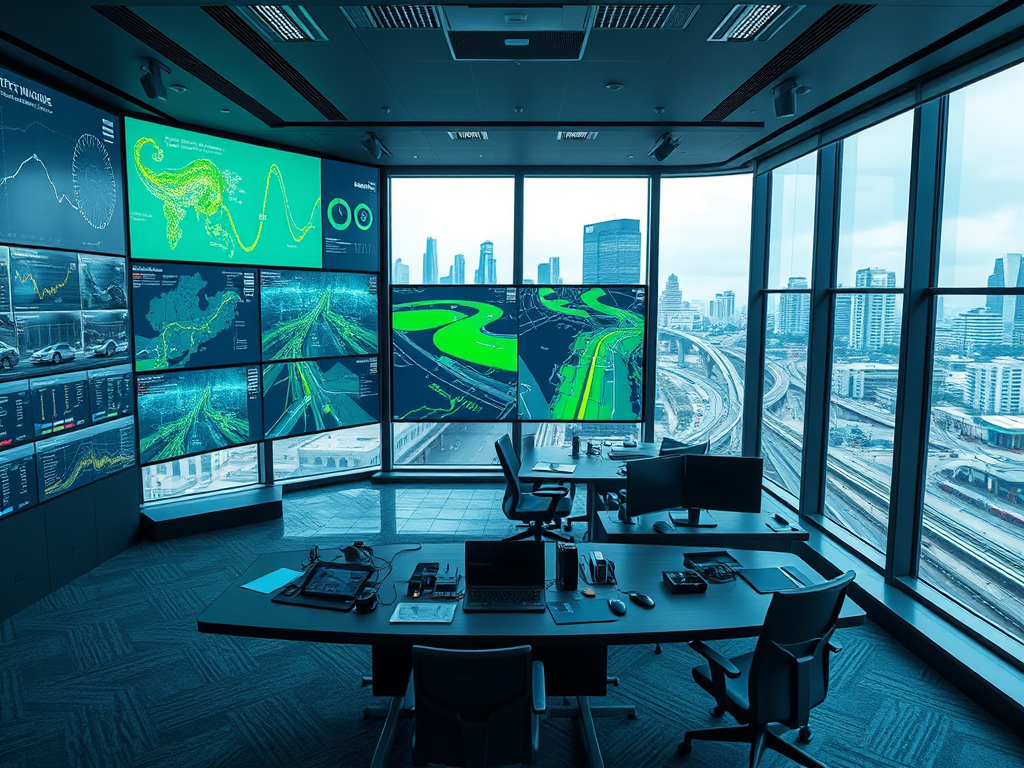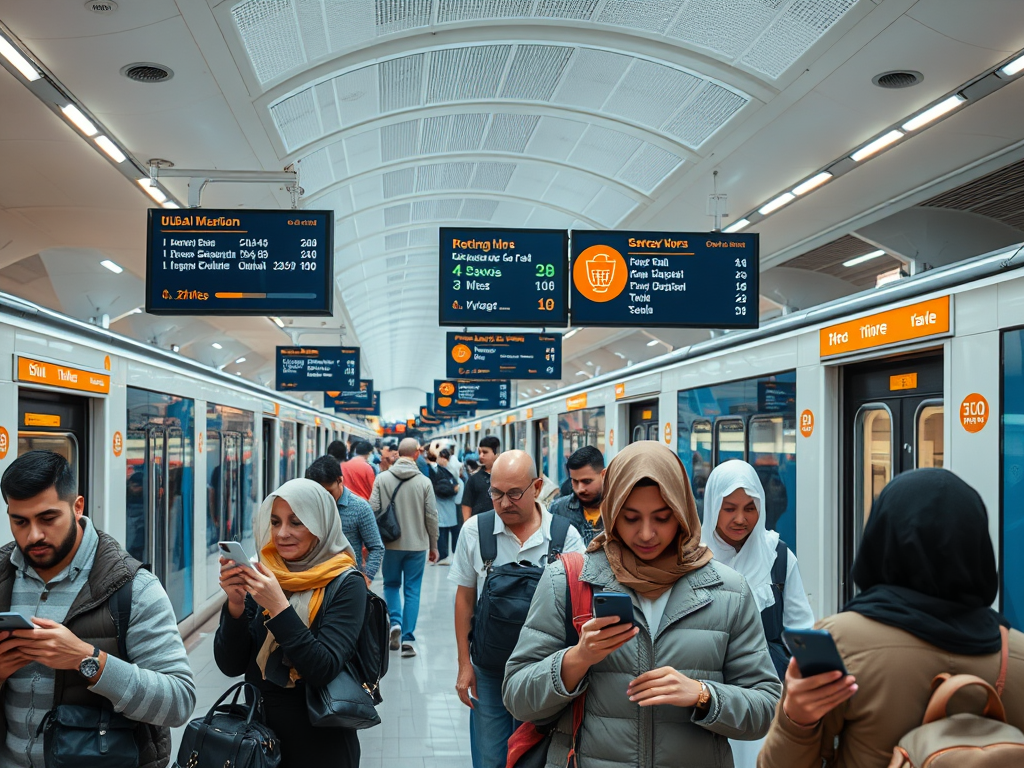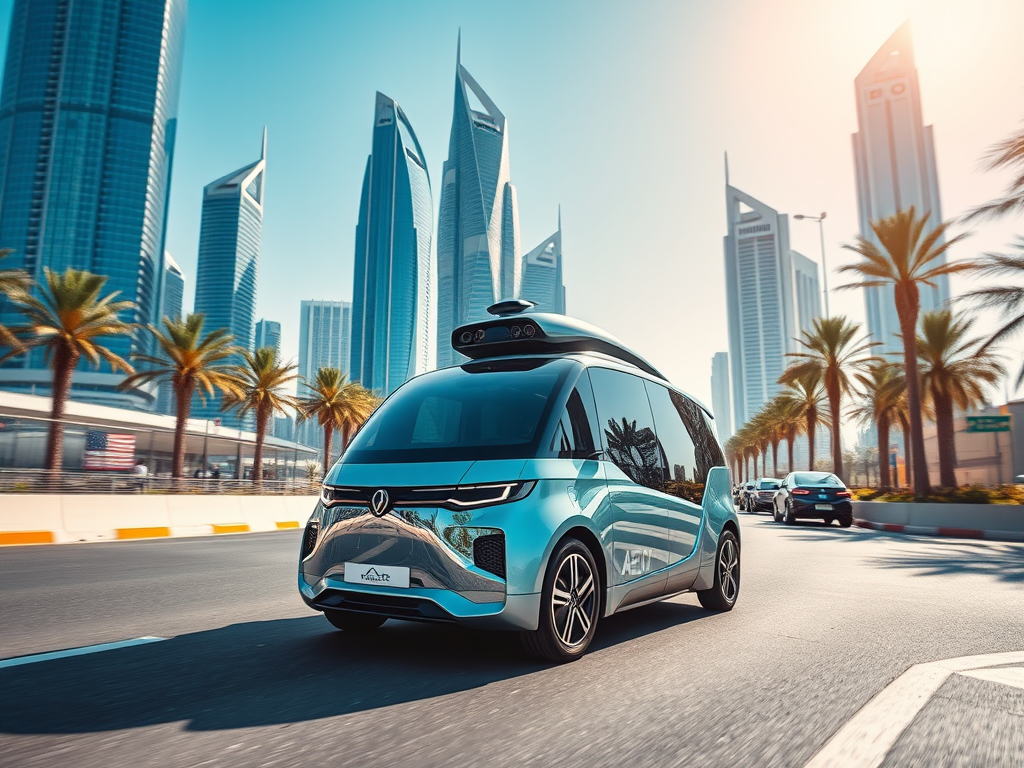Artificial Intelligence (AI) is revolutionizing various sectors, and the transportation industry in Dubai is no exception. Dubai, known for its ambitious infrastructure projects and smart city initiatives, is utilizing AI to enhance its transportation systems, making them more efficient, safe, and user-friendly. From autonomous vehicles to optimized traffic management systems, AI is playing a critical role in addressing the challenges of urban mobility in this rapidly growing city. This article explores the various applications of AI in Dubai’s transportation sector and how they are transforming the way people navigate the city.
AI-Powered Autonomous Vehicles

The introduction of autonomous vehicles is one of the most significant advancements in Dubai’s transportation landscape. The Dubai Autonomous Transportation Strategy aims to convert 25% of all transportation in the city to autonomous modes by 2030. AI technologies are at the core of this initiative, enabling vehicles to operate without human intervention.
Key features of AI-powered autonomous vehicles include:
- Advanced Sensors: These vehicles use a combination of LIDAR, radar, and cameras to perceive their surroundings accurately.
- Machine Learning Algorithms: AI systems learn from vast amounts of data to predict and respond to unpredictable road conditions and traffic situations.
- Real-Time Navigation: Autonomous vehicles can calculate optimal routes based on current traffic conditions, significantly reducing travel time.
- Enhanced Safety Features: AI technology minimizes human errors, leading to fewer accidents and safer travel experiences.
Traffic Management and Optimization

AI is making waves in traffic management, helping authorities to streamline traffic flow and reduce congestion. Utilizing AI algorithms, Dubai’s traffic management centers can analyze real-time data from various sources, such as traffic cameras and sensors, to make informed decisions. This system enhances the overall efficiency of the transportation network through:
- Dynamic Traffic Signal Control: AI can adjust signal timings based on real-time traffic conditions, improving vehicle flow.
- Incident Detection: Advanced algorithms can identify accidents or road issues quickly, allowing for faster response times.
- Predictive Analytics: By analyzing historical traffic patterns, AI can forecast peak hours and proactively manage traffic to mitigate congestion.
Smart Public Transportation Systems
Dubai is taking substantial steps to incorporate AI in its public transportation systems. The integration of AI enhances the user experience, making public transit more accessible and efficient. Smart features implemented in public transport systems include:
- Mobile Applications: AI-powered apps provide real-time updates and route planning, helping commuters make informed decisions.
- Passenger Flow Management: AI analyzes passenger data to optimize bus and metro schedules based on demand.
- Integration of Services: Different modes of transport, including taxis, buses, and metro services, are integrated using AI to provide seamless transfers.
- Feedback Mechanisms: AI systems gather user feedback to continuously improve services based on public needs.
The implementation of AI not only enhances efficiency but also contributes to sustainability in Dubai’s transportation industry. AI systems enable the city to focus on reducing carbon emissions and promoting eco-friendly travel. Key areas of environmental improvement include:
- Electric and Hybrid Vehicles: AI facilitates the use of more electric and hybrid options in public and private transport.
- Eco-Friendly Routes: AI can identify the most fuel-efficient routes for vehicles, reducing fuel consumption.
- Incentive Programs: Data-driven insights help design programs that encourage the use of public transport and carpooling, minimizing the carbon footprint.
Conclusion
AI is playing an indispensable role in shaping the future of Dubai’s transportation industry. By embracing cutting-edge technology, Dubai is not only improving the efficiency and safety of its transport systems but also paving the way for sustainable urban mobility. As these innovations continue to evolve, they are expected to enhance the overall quality of life for residents and visitors alike, making Dubai a leading smart city in the world.
Frequently Asked Questions
1. How does AI improve traffic management in Dubai?
AI improves traffic management by analyzing real-time data to optimize traffic signals, detecting incidents quickly, and forecasting traffic patterns to minimize congestion.
2. What is the goal of Dubai’s Autonomous Transportation Strategy?
The goal is to convert 25% of all transportation in the city to autonomous modes by 2030, enhancing safety and efficiency.
3. How does AI impact public transportation in Dubai?
AI impacts public transportation by providing real-time updates, optimizing schedules based on passenger demand, and integrating different transport modes for seamless travel.
4. What environmental benefits does AI offer in transportation?
AI offers environmental benefits by promoting the use of electric vehicles, optimizing fuel-efficient routes, and encouraging public transport usage to reduce carbon emissions.
5. What technologies are used in AI-powered autonomous vehicles?
AI-powered autonomous vehicles use advanced sensors, machine learning algorithms, and real-time navigation systems to operate effectively and safely.
